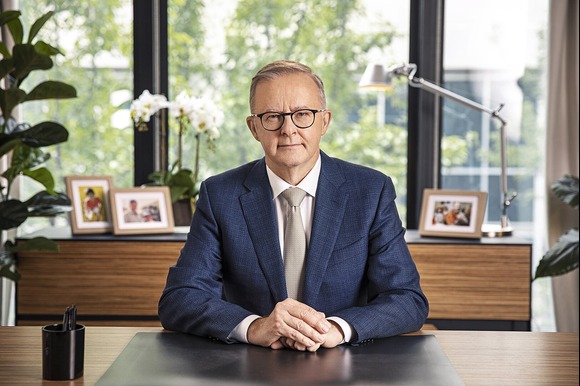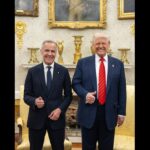Australian Prime Minister Anthony Albanese is set to visit China this weekend, where he will hold talks with President Xi Jinping in a bid to strengthen ties with Canberra’s largest trading partner.
The six-day trip will take the Australian leader to three key Chinese cities – Beijing, Shanghai, and Chengdu – with regional security and trade expected to dominate the agenda.
“My government will continue to cooperate with China where we can, disagree where we must, and engage in our national interest,” Albanese said in a statement ahead of the visit.
This will be Albanese’s second official visit to China, but the first since his Labor Party was re-elected in May with an expanded majority. The trip comes amid a shifting global landscape, shaped by former US President Donald Trump’s “America First” policies and growing economic protectionism. Albanese emphasised China’s ongoing importance to Australia’s economy, noting that it accounts for nearly a third of the country’s total trade and “will remain so for the foreseeable future.”
“The relationship with China means jobs in Australia. It’s as simple as that,” he told reporters on Friday.
Albanese, who has pledged to boost domestic manufacturing and job creation, brings with him a delegation that includes senior executives from major firms such as Macquarie Bank, HSBC Australia, and mining giants Rio Tinto, BHP, and Fortescue. Green energy is among the sectors where he hopes to expand cooperation with China.
Analysts view the trip as a signal of stabilising relations between the two countries, despite Beijing’s increasing military presence in the Pacific region, which has drawn concern from Canberra. Last month, Australia’s Defence Minister Richard Marles questioned the rationale behind China’s significant military build-up. He also labelled a rare Chinese military drill in the Tasman Sea in February as “unusual.”
“Both sides recognise their differences… [and] agree those differences should not define the relationship,” said James Laurenceson, director of the Australia-China Relations Institute. He added that the two nations are not seeking geopolitical alignment but must maintain a stable political environment to allow other areas – such as business, culture, and academia – to continue engaging independently.
Laurenceson noted that the visit might draw criticism from Washington, but said Albanese has public backing at home. “Washington is heading in a direction so plainly contrary to Australia’s interests that any [leader] seen as kowtowing to the White House would face pushback at home,” he said.
Observers expect Beijing to continue criticising Australia’s role in the Aukus submarine pact with the US and the UK – a deal now under review by the Trump administration. However, Albanese is expected to reaffirm Australia’s commitment to the trilateral agreement, even as he engages with China on broader issues.
Tensions also remain over other topics Albanese may raise during the visit, including China’s actions in the South China Sea and the imprisonment of Australian writer Yang Hengjun, who was recently given a suspended death sentence on espionage charges he denies.
Still, experts say these differences are unlikely to derail the broader relationship. “This is part of a broader, understated and mature diplomacy from the current government and it does not fall into the recriminations of previous years,” said Bryce Wakefield, head of the Australian Institute for International Affairs.
While in China, Albanese will also meet with Premier Li Qiang and Zhao Leji, chairman of the Standing Committee of the National People’s Congress.
Chinese state media has welcomed the visit, with the Global Times describing it as “carrying special significance” and reflecting “Australia’s desire to seek more reliable partners in an uncertain world order… with China being the obvious choice.”
Albanese’s 2023 trip marked the first by an Australian leader to China in seven years, ending a prolonged freeze in high-level engagement that followed a series of disputes and punitive tariffs imposed by Beijing. Since then, his government has managed to ease tensions and negotiate the removal of several damaging trade restrictions.






